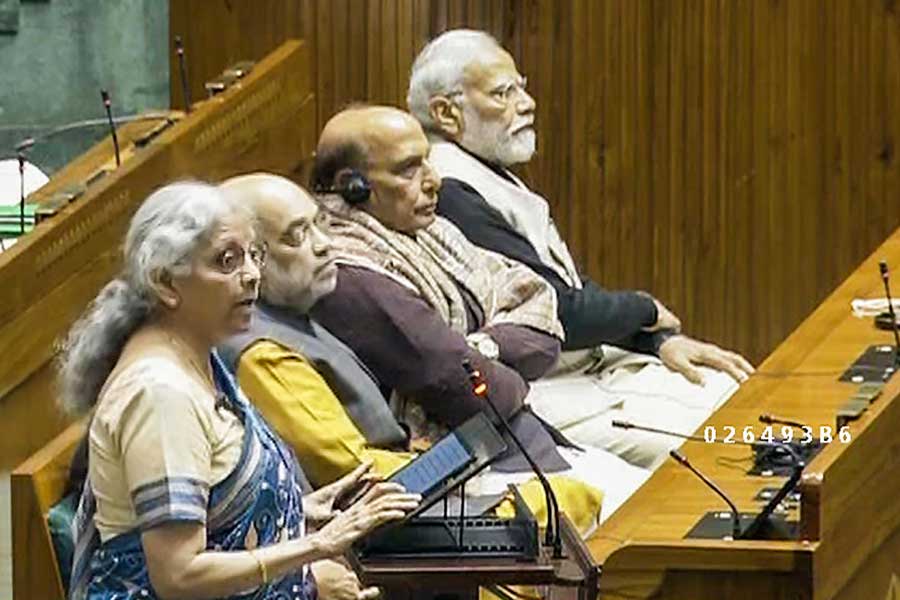The government will expand the electric vehicle ecosystem by supporting charging and manufacturing infrastructure in the country, Finance Minister Nirmala Sitharaman said on Thursday.
Sitharaman, in her pre-election Budget, which is technically a vote on account and popularly termed an interim Budget, also noted that usage of electric buses for public transport networks will be encouraged.
"Our government will expand and strengthen the e-vehicle ecosystem by supporting manufacturing and charging infrastructure," the finance minister said.
Greater adoption of e-buses for public transport networks will be encouraged through payment security mechanisms, she added.
Sitharaman also stated that the blending of compressed biogas into compressed natural gas for transport and piped natural gas will be mandatory.
Biomanufacturing and bio foundry scheme will be launched to provide environment-friendly alternatives for bio-degradable production, she added.
While applauding the positive aspects of the interim Budget, Quantum Energy Managing Director Chakravarthi C noted that certain expectations remained unmet.
The imminent expiration of the FAME II subsidy programme by March 2024 sparked hopes for its extension, aligning with the government's ambitious 2030 target of 30 per cent of electric vehicles on Indian roads, he said.
"An extension would have solidified support for the EV industry. Furthermore, a substantial reduction in GST on lithium-ion battery packs and cells, from 18 to 5 per cent would have alleviated manufacturing costs, making EVs more competitively priced and boosting consumer adoption," he noted.
The absence of a standardised policy for the battery-swapping market is also a missed opportunity, Chakravarthi C said.
Seafund Co-founder & Managing Partner Mayuresh Raut said the solar rooftop schemes will be a big boost to not only meet the goals for clean energy, but will also set up India to start addressing the EV charging infrastructure that is currently holding back wider adoption of EVs.
The visionary initiative of supporting the growth of the EV ecosystem not only accelerates the transition to sustainable transportation but also fosters innovation and job creation within the EV sector, Snap E Cabs Founder & CEO Mayank Bindal stated.
Except for the headline, this story has not been edited by The Telegraph Online staff and has been published from a syndicated feed.











